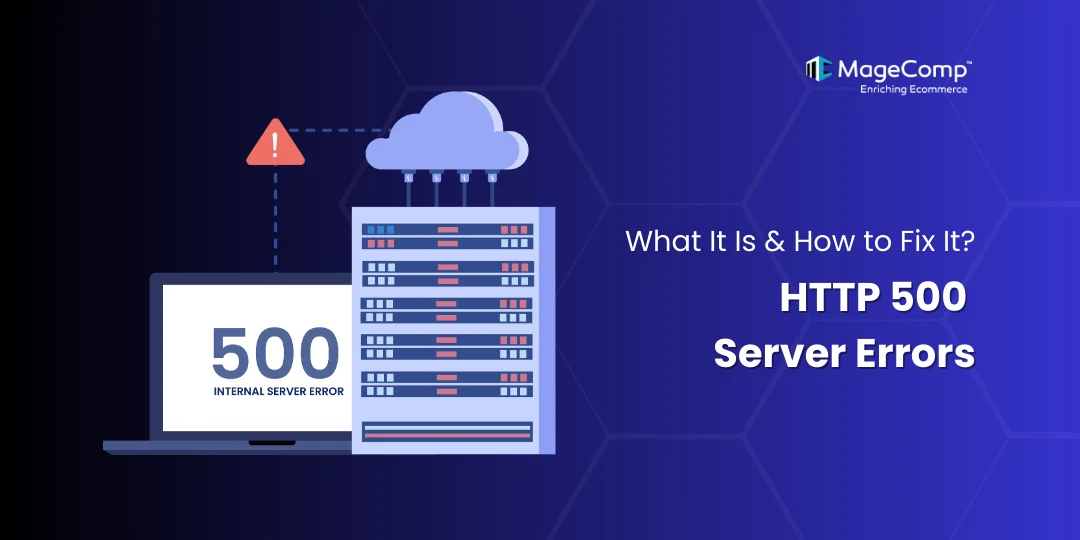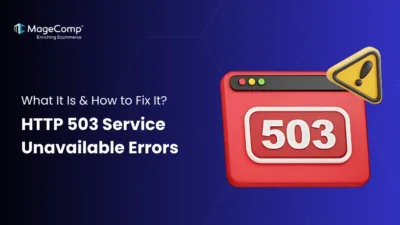As you are browsing the web, you might see a 500 Internal Server Error message. This is usually accompanied by little if any context, and you may wonder why this happened? Unlike user-related errors like 404 Not Found, a 500 error indicates there’s a problem with the server.

In this blog, we’ll explain what HTTP 500 errors are, why we see them, and how to fix them.
What is an HTTP 500 Server Error?
An HTTP 500 Internal Server Error is a generic error response from the server when something unexpected happens and it cannot fulfill the request. In simple terms, it means:
There was an error on the server, but the server can’t tell you exactly what.
This type of error can happen on any website, regardless of platform and technology, and it belongs to the 5xx class of status codes, which indicate server-related issues.

Common Causes of HTTP 500 Errors
The 500 error code does not mean one thing. You could have multiple causes to generate a 500 error, including:
Server Overload
If the server receives too many requests and it crashes or does not process requests.
Corrupted or Misconfigured .htaccess File
An internal server error can be caused by an incorrect .htaccess file, in websites that are running on Apache servers.
Faulty Plugins or Themes (CMS Platforms like WordPress)
A plugin or theme conflict can disable some of the functions of the site and thus create a 500 error.
Incorrect File Permissions
If the permissions for a file or folder are incorrect, the server may not be able to get access to the resource.
PHP or Script Timeout
If you run a PHP script that takes more than the allotted time to finish, the server will throw an error.
Exhausted PHP Memory Limit
Websites that utilize large scripts, or large databases, may call for more memory than allocated which can crash the server.
Misconfigured Server Settings
Server configuration files (Apache, Nginx, or PHP.ini) can also become so misconfigured that you are thrown a 500 error.

How to Fix an HTTP 500 Internal Server Error
If you are a user or website owner/admin, how you approach fixing this error will differ.
If You’re a Website Visitor:
- Refresh the Page: Sometimes, the error is a temporary one, so you may solve by just hitting refresh and continue.
- Clear Browser Cache and Cookies: An old cache file can be a problem sometimes if it tries to make a request to a page that no longer exists.
- Try Again Later: If the problem is related to too many requests on the server, waiting can be your only choice.
If the problem persists and there is no solution, you can contact the support team for the website.
If You’re a Website Owner:
Here are some practical troubleshooting steps:
Check the Server Logs
The server error log outlines the problem in some detail and specifies any errors that have occurred.
Check the .htaccess File
To determine whether the .htaccess file is to blame, rename the file temporarily to something else. If your site starts working, then start to update the .htaccess file properly.
Deactivate Plugins & Themes (for WordPress or CMS)
Deactivate all the plugins; switch your theme to a default theme. This is a good way to see what plugin/theme might be causing the issue.
Verify File Permissions
Check that your directories are set to 755 and files set to 644. If file and directory permissions are incorrect, it will not allow execution.
Increase PHP Memory Limit
Edit the php.ini file or add this line to wp-config.php (for WordPress):
define(‘WP_MEMORY_LIMIT’, ‘256M’);
Check for Coding Errors
Debugging custom scripts, scan your existing scripts for syntax errors, otherwise use the error reporting function to troubleshoot.
Restart the Server
Sometimes, just restarting the server resolves temporary glitches.
Contact Your Hosting Provider
If you have tried all of the above and still can’t figure it out, contact your hosting company, as sometimes adjustments need to be made on the server level.

How to Prevent HTTP 500 Errors
- Keep your CMS, plugins, and themes up to date.
- Regularly optimize databases to avoid overload.
- Monitor your server and if you see a substantial increase in traffic consider upgrading your hosting.
- Keep a record of all errors for the ability to debug a little quicker.
- Test modifications (plugins, code, configuration) on a staging site before making live edits.
Final Thoughts
The HTTP 500 Internal Server Error is an alarming thing to behold, however, by taking the process of elimination approach, you will be able to easily diagnose and repair the issue. For users, a little patience and some basic troubleshooting may solve the problem. For website owners, digging into the logs, checking plugins, and optimizing at the server level can indicate how to stop these errors from reoccurring.
Having a well-maintained server and website environment will certainly help to ensure these errors don’t reoccur and it will increase the specific browsing experience.
MageComp can help you get rid of 500 status code errors.
Check out other HTTP Code Blogs
- HTTP 400 Bad Request Error
- HTTP 401 Unauthorized Response Error
- HTTP 403 Forbidden Error
- HTTP 404 Not Found Error
FAQ
- What does an HTTP 500 error mean?
An HTTP 500 error means an unexpected condition was encountered which prevented the fulfilling of the request. It is a server-side error that is not caused by the user’s device or Internet connection.
- Is a 500 Internal Server Error permanent?
No, it is not usually permanent. Many 500 errors are caused by a short-term issue, for example, the server being overloaded or misconfigured files. However, it may take debugging or server changes to correct the errors that are persistent.
- Can users fix a 500 error on their own?
In most cases, probably not, because it is a server-side issue. However, users can try to refresh the page or clear their cache and cookies or they can try waiting and reattempting the webpage later.
- Can a 500 error affect SEO?
Absolutely. A website could quickly lose its rankings due to frequent 500 error messages. Frequent errors can cause search engines to mark the website as unreliable. The sooner the error is resolved, the better for the website’s continued visibility.





